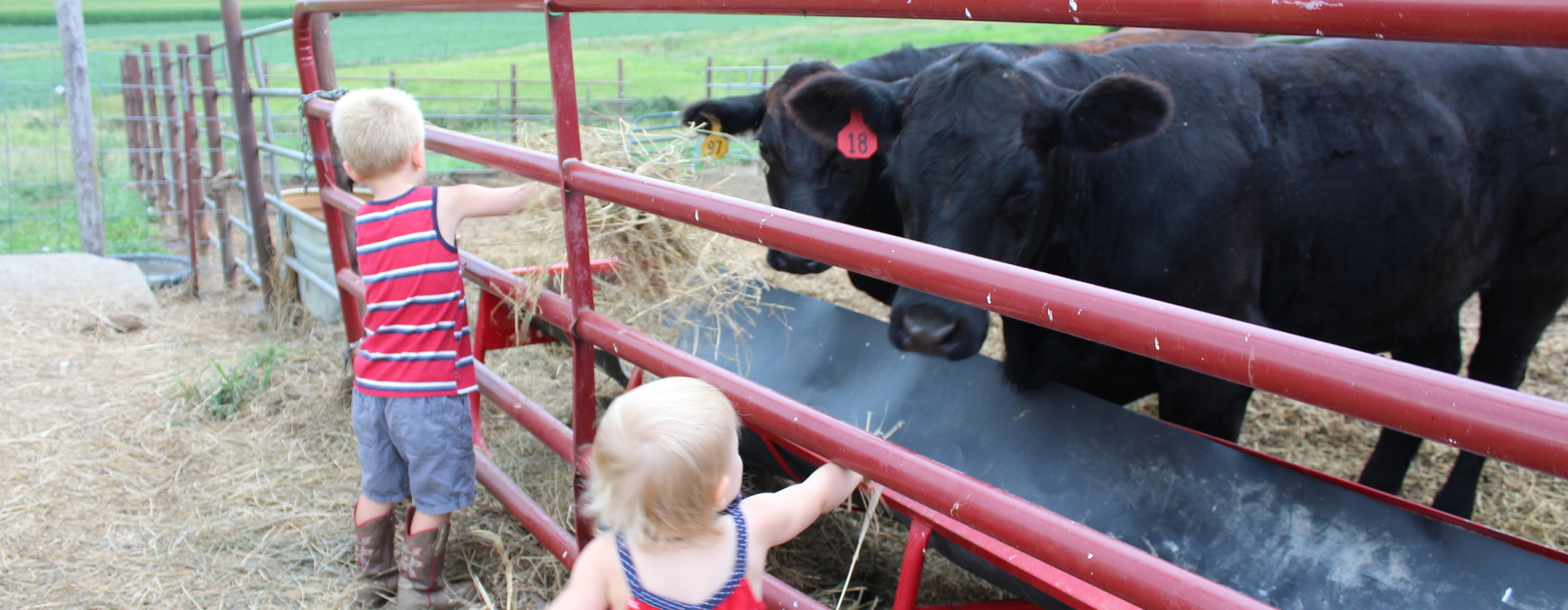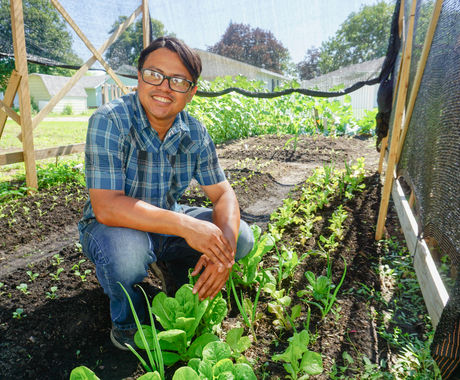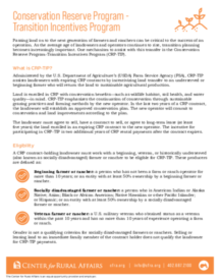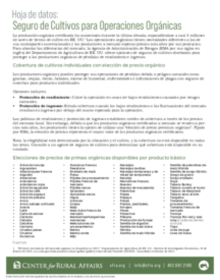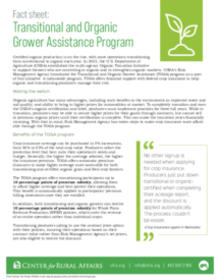Calling all beginning farmers and ranchers! America’s farmers and ranchers are aging, and it is prime time for a new generation. It can be hard for new farmers to get started, but there’s help. Check out our resources for ways to take advantage of exciting new opportunities.
Anyone with interest can become a new farmer—there is no age limit on pursuing an interest in farming or ranching. At the Center for Rural Affairs, we have resources to help new farmers become successful and profitable while they carry on the proud tradition of family farms and vibrant rural communities.
Learn more about opportunities and challenges for beginning farmers, including special programs for Latinos, veterans and women getting started in farming. Keep reading below, then check out the rest of our beginning farmer pages.
Programs and resources for beginning farmers
Federal Programs for Beginning Farmers
USDA Resources
Farmers.gov is the U.S. Department of Agriculture’s one-stop shop for beginning farmers and ranchers to access information about federal programs. Their resources include tips for working with the USDA, information on how to access land and capital, as well as contact information for local beginning farmer and rancher coordinators.
Conservation Funding with Incentives for Beginners
Environmental Quality Incentives Program
- Administered by the USDA's Natural Resource Conservation Service (NRCS)
- Provides financial assistance to farmers and ranchers interested in implementing conservation on their land
- Includes an organic initiative for organic or transitioning to organic farmers
- Special funding pools for beginners and socially disadvantaged farmers and ranchers lessens competition for funds
- Higher payment rates for beginners
Conservation Stewardship Program
- Working lands conservation program administered by the Natural Resources Conservation Service (NRCS)
- Offers technical and financial assistance to farmers and ranchers who already implement conservation practices on their land for maintaining high standards of environmental stewardship
- Special funding pools for beginners, socially disadvantaged farmers and ranchers, and organic or transitioning to organic producers
Rural Energy for America Program
- Provides grants and guaranteed loans to help farmers, ranchers, and rural small businesses purchase and install renewable energy systems or make energy efficiency improvements
Resources
General information
- International Farm Transition Network: A network that brings major linking programs together to support the next generation of farmers and ranchers.
- Nebraska Land Link: A network for land seekers and landowners. When you apply, Nebraska Extension personnel will work to match your application with the most compatible counterpart. Nebraska Land Link is a project of Nebraska Extension's Farm and Ranch Succession and Transition program and Nebraska Women in Agriculture.
Business and financial support
- Risk Management Assistance and Education: Information on the USDA’s Risk Management Agency, which helps producers manage their business risks
- NebraskaBeginningFarmer.org: access to financial resources for Nebraskans in agriculture
- ATTRA Sustainable Agriculture: ATTRA provides high-value information and technical assistance to farmers, ranchers, Extension agents, educators, and others involved in sustainable agriculture in the U.S.
- Farm Loan Discovery Tool: This tool is designed to help producers find USDA loans that meet their unique needs. Producers answer a few questions about the purpose of the loan and provide a rough estimate of the amount needed. With this information, the tool generates a list of local options for loans and eligibility criteria. It also provides information on the loan process, how to prepare for a visit to a local service center, and how to work with loan officers. The tool is free to use and available in Spanish.
Conservation, local food, and high value markets
- Pasture Monitoring: Grassfed meats offer new opportunities for entrepreneurial farmers and monitoring pastures and rangeland is critical.
- Growing Markets: Tapping Your Community’s Market Potential
- Beginning in Organic Farming
- Sustainable Agriculture Research and Education (SARE): competitive grants program providing grants to researchers, agricultural educators, farmers and ranchers, and students to advance farming systems that are profitable, environmentally sound and good for communities.
- Agritourism: Increase Farm Income by Hosting Others on the Land
- Barn Restoration: Preserving the Past, Opening Opportunities
- Farm to School Program: Bringing fresh, local foods into schools
Books, guides, and courses
- Holistic Management: Resources (including free downloads) and courses to help farmers and ranchers manage land in an economically and environmentally sustainable way
- Land Stewardship Project - Farm Beginnings: A range of opportunities to learn firsthand about low-cost, sustainable methods of farming; courses may be available in your area
- New England Small Farm Institute Publications: Books and courses available for purchase on topics for small farmers, especially “Exploring the Small Farm Dream”
- Northeast Beginning Farmers: Online courses and publications to help build new farm businesses, geared to the Northeast, especially New York State
- Guide to Farming in NY: Series of continually updated fact sheets on topics small farmers deal with, not limited to NY; also links to other useful resources.
- Tilling the Soil of Opportunity: The Cadillac of courses for farm entrepreneurship, a 10+ week course that goes in depth about financial planning and marketing, primarily for an add-on farm enterprise
- Integrated Farm and Resource Management (IFARM) Plan: Comprehensive guide for farm and resource planning, designed especially with beginning farmers in mind, integrating environmental protection with economic and community goals as well as family and personal goals. IFARM addresses marketing, production, financial planning, and assessment. If interested, please email Wyatt Fraas at wyattf@cfra.org.
- Wellhead Protection Plan: Keeping groundwater sources of drinking water clean and fit for human consumption is an important task for public water systems and well owners. In Nebraska, the aquifer that feeds your private well stretches for miles in any direction and is far beyond your control. Once contaminated, groundwater is very difficult to clean, and replacing your well can be expensive. Protecting your well and the immediate area surrounding it is the best way to avoid costly groundwater contamination. Having a wellhead protection plan that provides guidance for you will help to protect precious groundwater resources.
Do you need help starting a farm or ranch?
We can assist.

